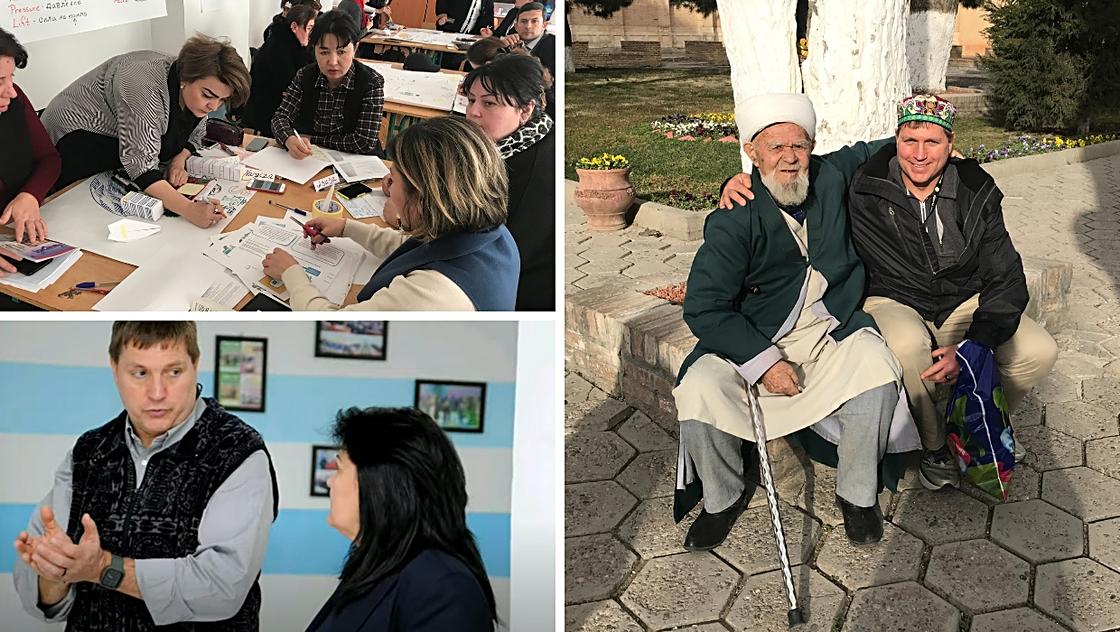Meet Allan Miller, an educator from Vermont who participated in the Fulbright Distinguished Awards in Teaching Short-Term Program in 2019. Learn more about his experience in Uzbekistan.
Why I applied
Being a full-time teacher, the idea that I could do something that was 6 weeks in length had a lot of appeal. The specific opportunity to go to Uzbekistan was a real eye-opener. I had a lot of opportunities to travel, but I had never been to Central Asia, and I had never been part of an Islamic culture.
What I did
I went to Uzbekistan to support STEM. My first challenge was figuring out what they were looking for. It was the perfect opportunity to practice the first step of design thinking, which is empathy. That became really dynamic—every day trying to discover and teach. I had to quickly understand where this fit in their curriculum. To me that was part of the excitement. It wasn’t going in and following a script. It was the hardest I ever worked as an educator. Everything was so dynamic. I worked with a cohort 25 teachers from all disciplines and all grade levels and give them intensive training in STEM.
What changed
In addition to STEM itself, Uzbek teachers were interested in the pedagogy and hands-on, experiential learning, anything other from the “sit-and-get” they were used to. I still connect with these teachers on a regular basis. They’re excited to share things. They want feedback. It created a real professional learning community.
My fellowship clearly made me a better STEM leader. Because things that I thought I understood, I unpacked at two or three levels beyond that. The questions that would come up—Why do you do this? Is it effective?—were some of the most challenging I’ve ever had in my professional development career. What it distilled down to is a set of concepts and an understanding that I brought back to the states that I really didn’t have before I was part of this fellowship.
I’ve also come back with the possibility of making international collaboration a real possibility with our school. I’ve connected our school’s first grade with a first grade in a town called Bukhara. It’s broadened my impact as an educator. I’ve been teaching for 36 years. Now I’m helping kids to learn on the other side of the globe. And that feels pretty cool.
